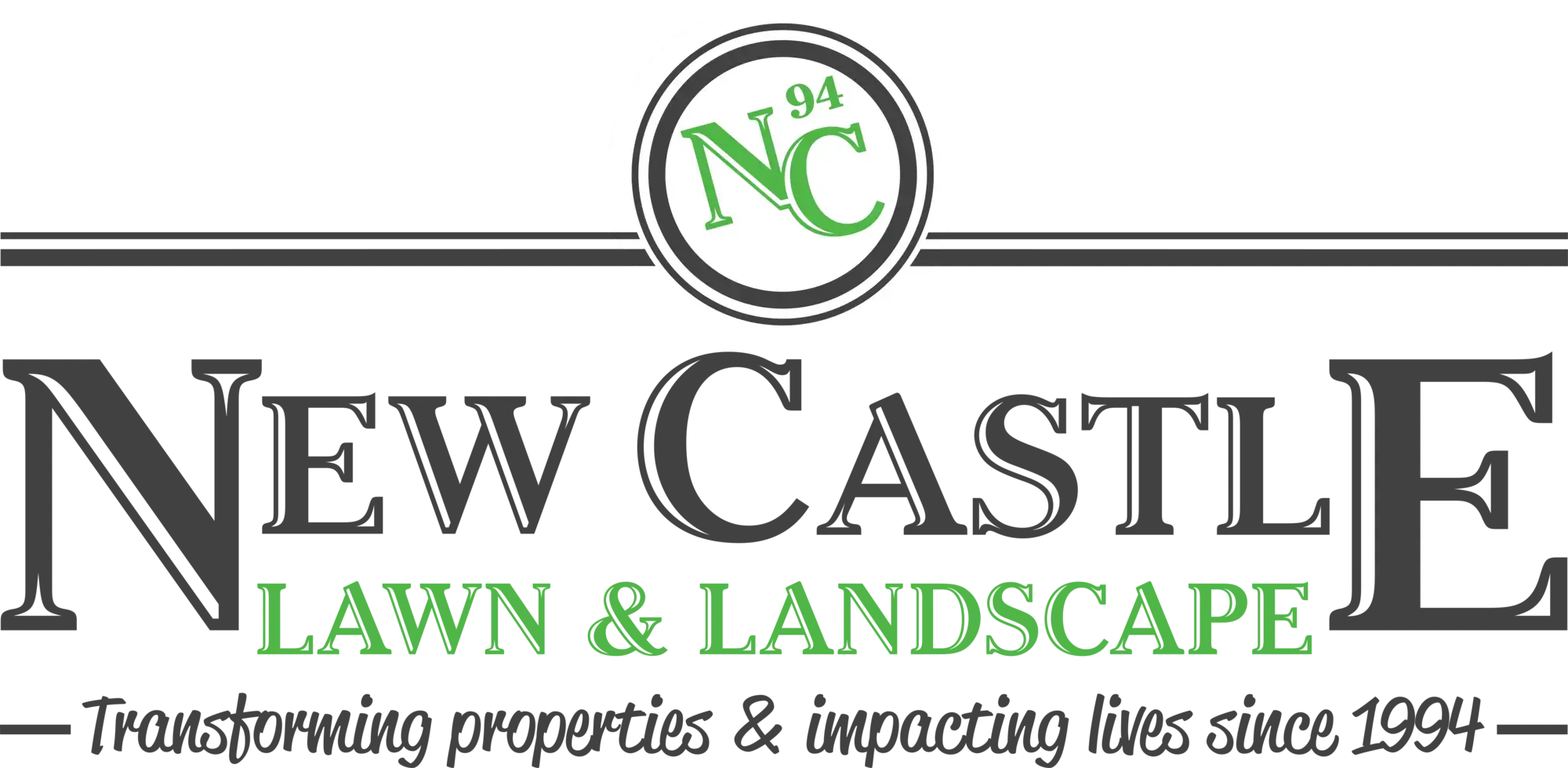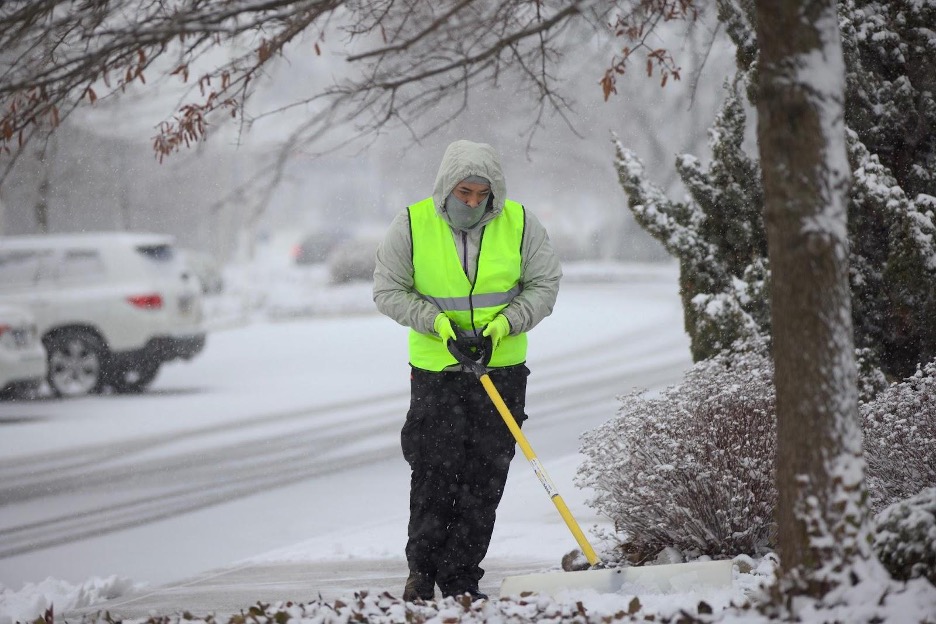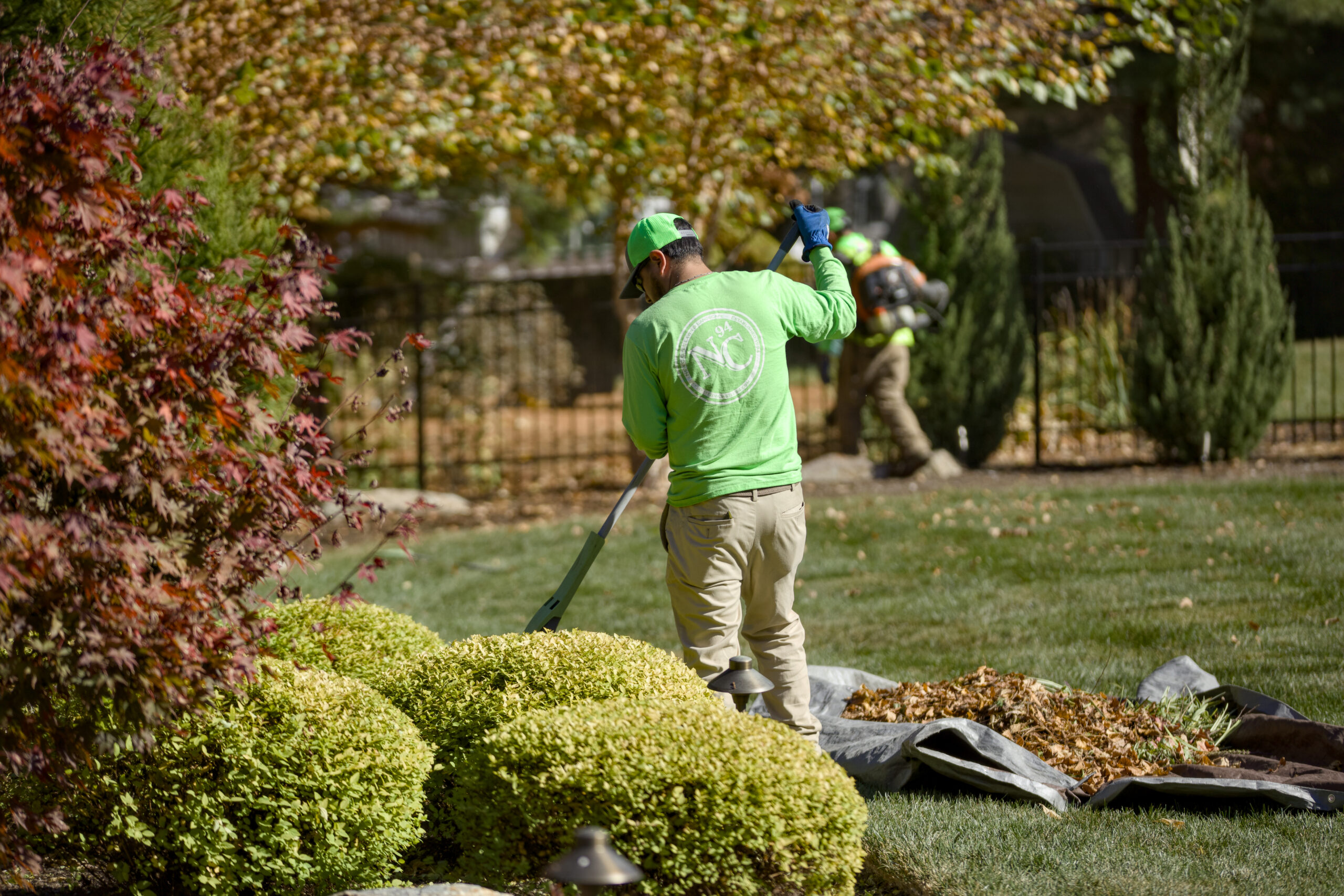Mulch does a lot more than just cover landscaping beds to give the dirt a polished look. The right mulch material can insulate and protect roots during sizzling Exton summers, locks in moisture during dry periods, and stops wandering weed seeds from taking root every time the wind blows. That said, not all mulches are the same, and some don’t even serve the same purposes.
Make the wrong choice for your application, and you could be fighting fungus, fading color, and runaway top-up costs. At New Castle Lawn & Landscape, we tailor your mulch type to your specific needs, plant maintenance requirements, and soil conditions, so your investment generates ROI all year long. Before you schedule your mulch installation in Exton, PA, use our handy guide here to compare your options.
Table of Contents
ToggleWhy the “Right” Mulch Matters for Pennsylvania Landscapes
Unlike some parts of the country, we get all four seasons here in Exton, and we get them at their biggest and most intense. First and foremost is the constant humidity that comes with all climate swings from winter freezes to mid-summer heat waves.
A consistent 2-to-3 inch mulch layer acts like a thermal blanket, helping keep soil well below 90°F on summer afternoons, and helping to insulate roots when winter hits us with temps in the teens. No matter what season, mulch helps stop evaporation by substantial amounts. This means you’re watering less and saving money, while your landscaping is staying healthier, longer.
Weed Suppression & Soil Health
Just like most other plants, weed seeds need sunlight to germinate, and by blocking light, mulch helps cut weeds’ ability to take hold. Reduced weed pressure means your other plants are freer to flourish, and you can spend your weekends doing things other than pulling weeds and crabgrass.
Organic mulches give another bonus: as the wood or leaf material breaks down, earthworms pull the materials deeper and use them to improve soil structure. While breaking down in the soil, it also creates slow-release nutrients. This leads to loamier soil that holds moisture much better, while still freely draining, creating the ideal substrate for everything from ornamental grasses to delicate flowers.
Organic Mulch Options & When to Use Them
Aged Hardwood Bark
Aged hardwood bark is typically sourced from sawmills, where the bark is double-shredded for a super-fine, even “carpeted’, look. This mulch holds together well and resists washout. It also decomposes very slowly, adding hummus over long periods, and making it ideal for long flower beds or under mature trees where top-ups are easier to manage.
Triple-Shredded Black Dyed
If rich, deep color is what you want, black-dyed mulch is the darkest mulch that provides the highest contrast with nearby foliage. The dye is non-toxic and UV-stable, but you should expect some fading by the end of the year, so plan on a refresher each spring to keep curb appeal popping.
Leaf Mold & Compost Blend
Created from partially decomposed leaves and screened yard waste, this mulch is a nutrient powerhouse. It’s lighter than bark, making it easy to spread around tender annuals and vegetable beds. Because it breaks down quickly, leaf mold doubles as a soil conditioner: till leftovers into the topsoil each fall to boost organic matter before re-applying a fresh layer next spring.
Inorganic & Specialty Mulches for Long-Term Performance
Decorative Stone & River Rock
River rock, pea gravel, and crushed granite deliver an upscale but low-maintenance finish that is popular around foundations and in drainage swales. Since stone won’t decompose, it generally won’t need topping off, which saves money every year following installation. With landscape fabric underneath, weeds are blocked, and the stone stays out of the soil.
Choosing the Best Mulch for Exton’s Climate & Soil
- Drainage & pH Considerations: Clay-loam beds that hold a lot of moisture after storms can benefit from upgraded drainage, like stone, that allows quick and even runoff. The acidic soils common to our area also respond well to hardwood bark, which helps even out the pH as it breaks down over time.
- Slope & Erosion Control: On embankments, triple-shredded bark knits together and resists washout better than coarse chips. Where stormwater scours the soil, heavier river rock anchors beds without migrating downhill.
- Color Longevity & Curb Appeal: Dyed mulches offer dramatic contrast but fade within a year. Natural brown bark weathers gracefully, while rubber and stone maintain their tone for several seasons, which is perfect for keeping even curb appeal with low upkeep.
- Cost vs. Replacement Cycle: Hardwood bark is inexpensive up front but requires annual top-dressing. Stone costs more initially, yet may not need replenishing for a decade. Look at your projected total expenses over about five years to see which option will truly save you money.
- Delivery & Blow-In Options: Large projects benefit from blower-truck installation that spreads mulch evenly and quickly without wheelbarrow ruts. Our services run the spectrum and include mulch delivery and hassle-free cleanup.
Schedule Professional Mulch Installation Today
Choosing the best mulch for your Exton property depends on your soil makeup, your planting palette, how much upkeep you’re willing to commit to, and, of course, your personal preferences. From the rich, soil-building benefits of aged hardwood bark to the decade-long staying power of decorative stone, New Castle Lawn & Landscape is ready to help you each step of the way. Reach out today to speak with a local expert about scheduling your free estimate.






